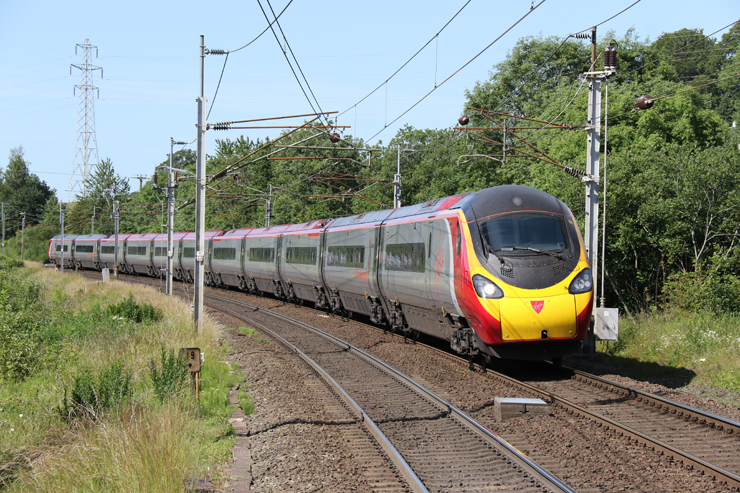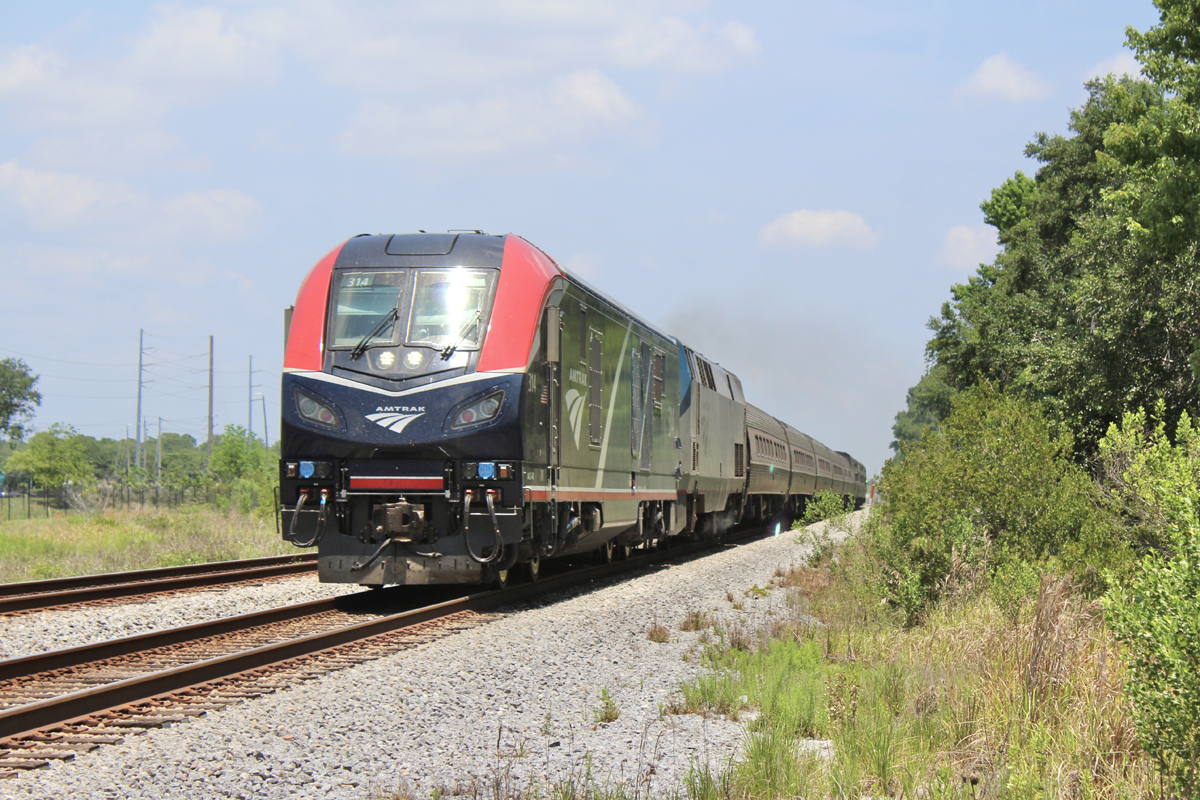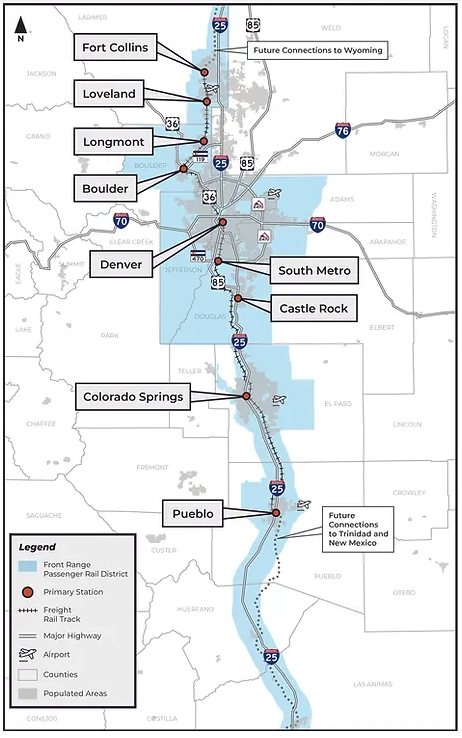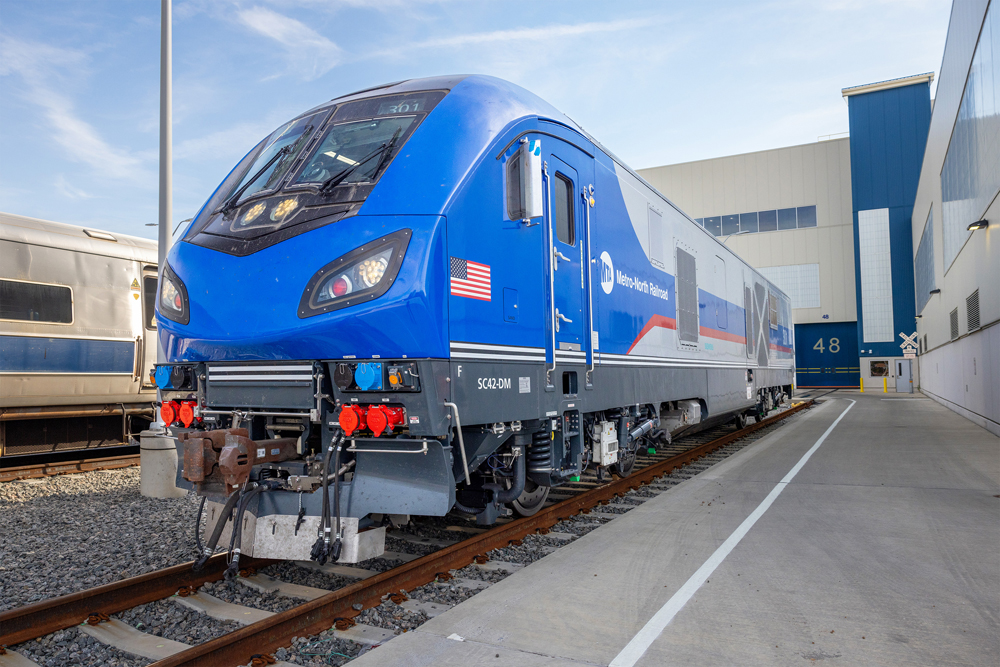LONDON — Days after unveiling new the rebranded Virgin MiamiCentral station as part of the rebranding of Brightline into Virgin Trains USA, Virgin Group chairman Sir Richard Branson has received bad news on another rail operation. His Virgin Rail company may disappear from the British rail network before Christmas, and certainly by next March, after the British government disqualified its bid to continue operations in the UK.
The bids led by Virgin’s partner, British transport group Stagecoach, was to continue to run the West Coast network from London to Manchester, Liverpool, and Glasgow. Virgin has operated the network since it was privatized in 1997. Virgin sold 49% of its UK rail company Virgin Trains to Stagecoach in 1998 and the two companies have cooperated on the route since then.
The new 11-to-15-year contract to operate the route is due to start in March 2020 at latest. Beginning in 2026, it will include operation of the first stage of the new “High Speed 2” 225-mph high speed line, under construction between London and Birmingham.
The bid involving Virgin (which owned 20% of the planned new operator), Stagecoach (which owned half), and French railway SNCF as was disqualified by the British Department for Transport for failing to meet requirements for funding the national rail industry pension plan. Stagecoach was also disqualified at the same time from two other contracts for the same reason.
The reason may sound obscure but the numbers involved are significant. When British Rail was privatized in the 1990s, employee pensions remained in one national plan funded by the industry’s new companies. By some estimates, the plan faces a deficit of several billion dollars, and the British government requires new contract holders to sign up to avoiding any default on pension payments. Stagecoach, with a turnover of around $1 billion, decided that signing up to future possible cash calls of hundreds of millions was too risky.
“I am devastated for the teams who have worked tirelessly to make Virgin Trains one of the best train companies in the UK, if not the world,” Branson said in a statement on the Virgin Trains website. “Virgin Trains has led in the industry for more than 20 years and we wanted this to continue for many more years.”
Two bidders remain for the contract, considered the most important in the UK: British transport company First Group, partnered with Italian national railway company Trenitalia, and a consortium of Hong Kong-based MTR Group, Chinese high speed rail company Guangshen Railway, and Spanish national railway company RENFE.
Another Virgin Trains operation had its contract taken away in May 2018 for failing to fulfil payments to the government. The London-to-Edinburgh East Coast route, branded as Virgin Trains East Coast although Virgin was only a 10 percent owner, had only run for three years, costing majority shareholder Stagecoach around $280 million and Virgin a smaller amount. A government-run company has replaced the Virgin/Stagecoach operation.














Rode the West Coast route Glasgow-London 4 years ago and thought the rolling stock OK, but not the track.
Brett, does USPGC underwrite government pensions?
Seems to me BritRail’s pensions weren’t fully funded, but used current employees to cross-subsidize retirees. Welcome to the USA of the UK.
The point I was trying to make is that this qualification was in the bid documents before Stagecoach/Virgin submitted their bids. Why did Stagecoach knowingly submit a bid that did not meet the qualifications? I never said I agree with the operators today funding the pensions of employees that worked for BR decades ago.
At the same time, one could ask why the operators are being subsidized through the government purchase of the trainsets they use to make profit from? That might be part of why the government added this requirement to this round of bidding. Maybe the government looks at it as a fair exchange – we pay for your trains, you pay for pensions in return?
Again, Private companies are to make money not subsidize, that’s a government program.
Imagine if The UK has their equivalent of our USPGC. I know a few folks that are “victims “ but for a contractor to pay for pensions? Thats just stupid to agree to that!!
So, the British government is shirking it’s responsibilities, doesn’t surprise since they can’t even decide on how to leave the EU. It’s NOT the responsibility of new operators to make up for loses in the Pension plan, that is entirely on the government to make up for the losses incurred when it was national system known as British Railways, that’s called passing the buck. Brian’s comment below shows how some people don’t understand when the government is trying to fleece and for profit business, which is exactly what they’re trying to do in this case. Based on the bidders that remain I predict service will deteriorate and ticket prices will rise with a subsequent decrease in passenger loadings, leading to a downward spiral and the retakeover of services by the Government. No private company should be forced to provide the funds to maintain a system they have ZERO control over.
The question is not whether the operator should pay for the continuing pension costs of retired employees. It is why did Virgin’s partner intentionally omit from their bid how they were going to pay for these costs. It is my understanding that all bidders were required to spell out how they would pay into a fund that would be used to help pay for pension obligations. The new contract was meant to increase the amount paid by the winning bidder. That Stagecoach was the only entity that did not follow the rules is telling (they also got disqualified on other bids for the same omission). They thought for whatever reason they could get away with not meeting the bid requirements and got called on it by the DfT. I have no sympathy for Stagecoach or Virgin. They knew exactly what they were doing. Unless they are really that incompetent.
Shouldn’t the pension/debt costs be buried in the maintainer of the rails? They would then include those costs in their usage agreement with the operator.
Making the operator pay into a pension fund directly instead of through the ROW usage fee is ridiculous.
Are they making the operators hire staff at union rates?
Again this is crazy if the operator has no ability to negotiate with the union.
If the operator can’t competitively raise their fares, and the rail usage cost and union wages are preset, and they can’t do a US style “regulatory recovery fee” on the bill, then they have to reduce the level of service or exit the business to compensate,
The London/Manchester route will look more like Ryan Air Economy than a passenger train. No bathrooms, threadbare seating and no concessions.
I am guessing the next operator will demand a fare increase to make up for the pension costs. Or get away with a “deferred union compensation fee” on the ticket purchase.
Not mentioned in the article was the failure of the Infrastructure company Network Rail to keep its commitments on track upgrades. A lot of those Virgin Trains were to increase in speed from 125 mph to 140 mph but Network Rail never upgraded the tracks as it committed to. A major hit to projected increase in profitability / ridership for Virgin Trains. Now with the pension BS, the UK wants to add higher costs of running their lines. I think Virgin should temporarily pull out until the environment returns to one of sanity. Why take the financial beating?
The bottom line of the article is that the new companies running British passenger trains have to factor in old pension liability from before they arrived on the scene. So, BritRail has a pension problem decades after it stopped running trains. Sounds like Europe has some of the same problems we do.
When a person buys a house, his or her attorney makes d….ed sure all old debts are cleared up: utility bills, tort liability, contractor liens, real estate taxes, etc. The new owner wouldn’t want any of that.
If our Amtrak is to be broken up, parceled out, privatized, etc., will its pension liabilities go to the new operators?
Sounds like everyone needs a good divorce lawyer.
BTW, FWIW, Virgin had the reputation of being the best of the many operators. It’s disqualified not because of poor service but because it won’t pony up for BriRail’s old debt.